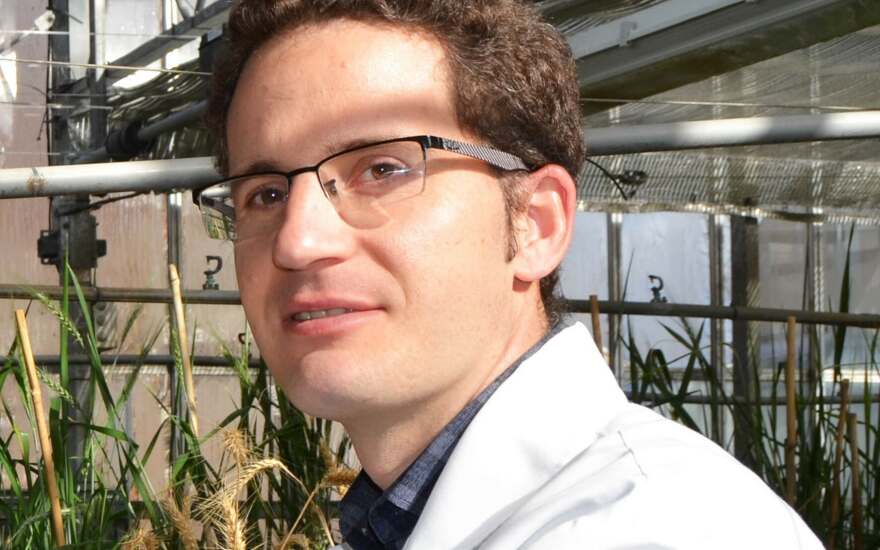
Feeding our future: The Wheat Cultivars project improving yield one grain at a time
Jon González, Cereal Technician from Grupo AN explains how the Wheat Cultivars project is helping to feed the growing population by optimising wheat yield and quality. He also highlights how co-creation is the key to sustainable wheat development and food production as a whole.
Hi Jon! Can you tell us about the Wheat Cultivars project?
The project is about improving the development of wheat by identifying varieties which are tolerant to drought and the wheat disease known as yellow rust. Climate change will have a significant impact on crop production in the future, so we need to adapt how we manage crops in different climatic regions all over the world to improve wheat yield and quality.
Important stuff. Who is involved in the project?
Our project uses a multidisciplinary approach, where we bring together diverse expertise to provide the best advice for European farmers. This includes the large farmers’ cooperative Grupo AN, the Superior Council of Scientific Investigations, the University of Reading and the RisingFoodStar Grainsense.
Can you share what you have already achieved with this project and what your next steps are?
Absolutely. We have collected the results from our first year’s field trial and greenhouses studies where we tested different treatments to see what affect they had on wheat. Some of these treatments included using fungicide to eliminate fungi on wheat crops, and bio-stimulant which is used to stimulate the natural processes in wheat development. Our next steps include gathering more data over different agro-climate conditions, so we can form reliable conclusions on the best ways to stimulate wheat production.

Wheat plots in Spain aiming to increase wheat yield and quality
Very insightful. How is the Wheat Cultivars project helping with EIT Food’s objective to enhance the sustainability of the food system?
We align with EIT Food’s sustainability objective because we want to improve wheat quality and quantity and resource use efficiency for future generations. By identifying the wheat cultivars tolerant to drought and the yellow rust disease in different European regions, we can improve the self-sufficiency and availability of wheat, while achieving more sustainable food production. We are also evaluating bio-stimulant products with the aim of increasing the resilience of crops to drought and pest pressures.
Do you think that increasing wheat grain quality and yield will be enough to feed the increasing global population?
It will definitely be part of the solution. As wheat is such an important crop in most of our diets, improving its yield and quality will help feed our growing population. However, we recognise that feeding the population is a joint effort which requires industry and researchers across the global food supply chain to work together. Nevertheless, our project is contributing to the UN sustainable development goal of zero-hunger.
Amazing. From working closely with European farmers, what are some of the challenges they face?
Farmers across Europe face multiple threats on a daily basis including the price of crops, pest problems and challenging weather conditions. They are always looking to improve the profitability and sustainability of their business which we believe go hand in hand. We hope to demonstrate to farmers that trying new techniques and crops can help enhance both profits and sustainability.
As an innovation project that uses technology to collect wheat cultivar data, to what extent can innovation and technology address food system challenges?
We believe technology and innovation are critical to ensuring the sustainability and profitability of our food value chain. Innovative technologies such as low cost grain quality (quantifying protein, moisture, carbohydrates and oil contents) analysing devices (such as GrainSense device) together with robotics and artificial intelligence that can interpret soil health are worth investing in. However, to guarantee the success of these technologies, they must be co-developed with farmers, as co-creation achieves maximum benefits for the food system as a whole.
Absolutely. From your experience, is competitiveness of farmers or collaboration with them the key to delivering a more sustainable food system?
When an R&D Institution or university works with them in their research through events, demonstrations or trials, farmers can see first-hand that they can do certain things in a different way. Collaborating and working together is key to delivering a more sustainable food system because knowledge and expertise can be shared to create impactful solutions.
Lastly, what is the one thing you want to change the most about the food system?
Waste reduction. This is because it’s a major challenge across the entire food value chain, from the farm, to processors and suppliers to the consumer. Managing and reducing this is essential to achieve a sustainable food supply system that is able to supply the demands of an increasing global population.
About the author: Laura Elphick is a Communications and Events Assistant at EIT Food. She holds a First-Class Bachelor’s Degree in Consumer Behaviour and Marketing and is passionate about promoting a sustainable food environment to consumers.
